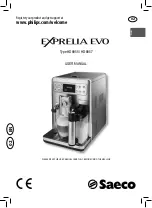
- 31 -
7.3 USE OF WILDCARDS
Applicable commands: ID/HW
These commands have the following common specifications:
[Common specifications]
File name and extension
• Wildcards are used in accordance with the rules shown below.
[Wildcard applying rules]
Wildcard type
[*]… This can be substituted for a string with an unspecified number of characters.
When [X*Y] is entered, [Y] is deemed invalid and it is processed as [X*].
[?]… This can be substituted for one or less character.
[Application examples]
[*.XXX]
: All files with the specified extension are applicable.
[A*.XXX]
: Files of which name starts with [A], and the number of characters is 1 or more
E.g. A.XXX / AB.XXX / ABC.XXX
[A*C.XXX]
: [C] is deemed invalid and it is processed as [A*].
[A*C*E.XXX] : [C*E] is deemed invalid and it is processed as [A*].
[A?.XXX]
: Files of which name starts with [A], and the number of characters is 1 or 2
E.g. A.XXX / AA.XXX
[A?C.XXX]
: Files of which name is [A] or files having a 3-character name which meets the
definition of [A?C]
E.g. A.XXX / ABC.XXX
[A?C?.XXX] : Files of which name is [A], files having a 3-character name which meets the definition
of [A?C?]
E.g. A.XXX / ABC.XXX / ABCD.XXX
[A??.XXX] : Files of which name is [A], files having 2-character name which meets the definition
of [A?], or files having 3-character name which meets the definition of [A??]
E.g. A.XXX / AB.XXX / ABC.XXX
[A??D.XXX] : Files of which name is [A], files having 4-character name which meets the definition
of [A??D]
E.g. A.XXX / ABCD.XXX
[*.*]
: All files .
















































